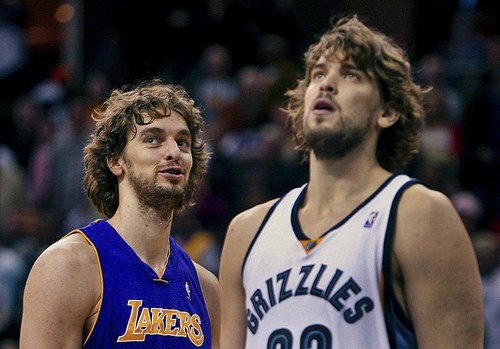In the 2007 NBA playoffs, the 8th-seeded Golden State Warriors (with 42 regular-season wins) upset the top-seeded Dallas Mavericks (67-15 in the regular season) for what many consider the greatest upset in postseason history. Those Warriors, though, were then clobbered by Utah in five games, forever left in the category of one-and-done NBA Cinderella stories.
By taking two of their first three second-round games, the Memphis Grizzlies, of course, have already surpassed the achievement of the 2007 Warriors. However the series with Oklahoma City turns out, the Grizzlies have entered the chapter on Greatest Underdogs in NBA history. But when exactly does an 8th-seeded team lose the Underdog cape?

If there was anything truly shocking about the Grizzlies’ turning a 13-point deficit into an 8-point victory over the final 17 minutes (including overtime) of last Saturday’s Game 3 at FedExForum, it was how the event didn’t bring all that much surprise. Despite their shooting troubles (38 percent for the game), despite the Thunder’s Kevin Durant looking unguardable at times, and despite Serge Ibaka (six blocks) making life near the basket miserable for Zach Randolph and Marc Gasol, the Grizzlies did what fans watching regularly over the last two months have come to expect. Since March 14th, the Grizzlies have won 12 of their 13 games at the newly christened Grind House, the lone loss coming by a single point to the Clippers (amid officiating controversy at the game’s end) on April 5th.
With two more games to play on their home floor (if the Thunder can force a Game 6), the Grizzlies — dare we say — should be expected to reach the Western Conference finals. It’s a bizarre notion to consider, a strange sentence to write, but one these remarkable, yes, underdogs have earned as they continue to make NBA history.
* Last week during a radio interview I was asked which Gasol brother has proved more valuable in these playoffs. It was a “tell-us-what-we-all-see” inquiry, but I didn’t mind accentuating the truth that’s unfolded over the first two playoff rounds. The Lakers’ Pau Gasol is an All-NBA talent with two championship rings he can taunt younger brother Marc with when they’re traveling together in the off-season. But if you ask the crowd at FedExForum Monday night to raise a hand if they’d reverse the 2008 trade that sent Pau from Memphis to Los Angeles for Marc, you’d see 18,119 people with their arms crossed. The numbers don’t lie: Pau averaged 13.4 points and 7.8 rebounds for L.A. while Marc has averaged 14.9 and 11.6 for the Grizzlies. And only one of the brothers is still playing.
* Should the Grizzlies and Dallas Mavericks meet in the Western Conference finals, it would mean a pair of teams that lost their second-leading scorer well before the playoffs are vying for a berth in the NBA Finals. (The Grizzlies’ Rudy Gay and the Mavs’ Caron Butler have each been spectators since February.) If that’s happened before, show me.
* Had he stayed at the University of Memphis — a silly notion for myriad reasons now — Derrick Rose would have completed his senior season a few short weeks ago. Instead, he’s the youngest player in NBA history to be named Most Valuable Player and managed to win a game all by himself last Friday, scoring 44 of his team’s 99 points in a win at Atlanta. He’s the face of a lost banner for the U of M program and always will be, but he’s a talent you cannot turn away from. Among guards, this is the Magic and Michael category. Among contemporaries, the Hornets’ Chris Paul and sometimes the Thunder’s Russell Westbrook are the only other point guards in the conversation. But just as Michael needed Scottie Pippen and Magic needed Kareem Abdul-Jabbar, it appears Rose may need a perennial All-Star at his side before his Bulls can be considered title contenders.
* Monday night’s game at FedExForum will be the Grizzlies’ fifth sellout of the playoffs, giving them one more full house in the postseason than they had in 41 regular-season home games. Memphis may or may not win an NBA title, but the franchise has surely benefited more financially from its maiden voyage into the second round than any of the other six remaining teams in the playoffs. If we’ve learned anything from the modern economy, it’s this: What’s good for one business is good for all businesses.